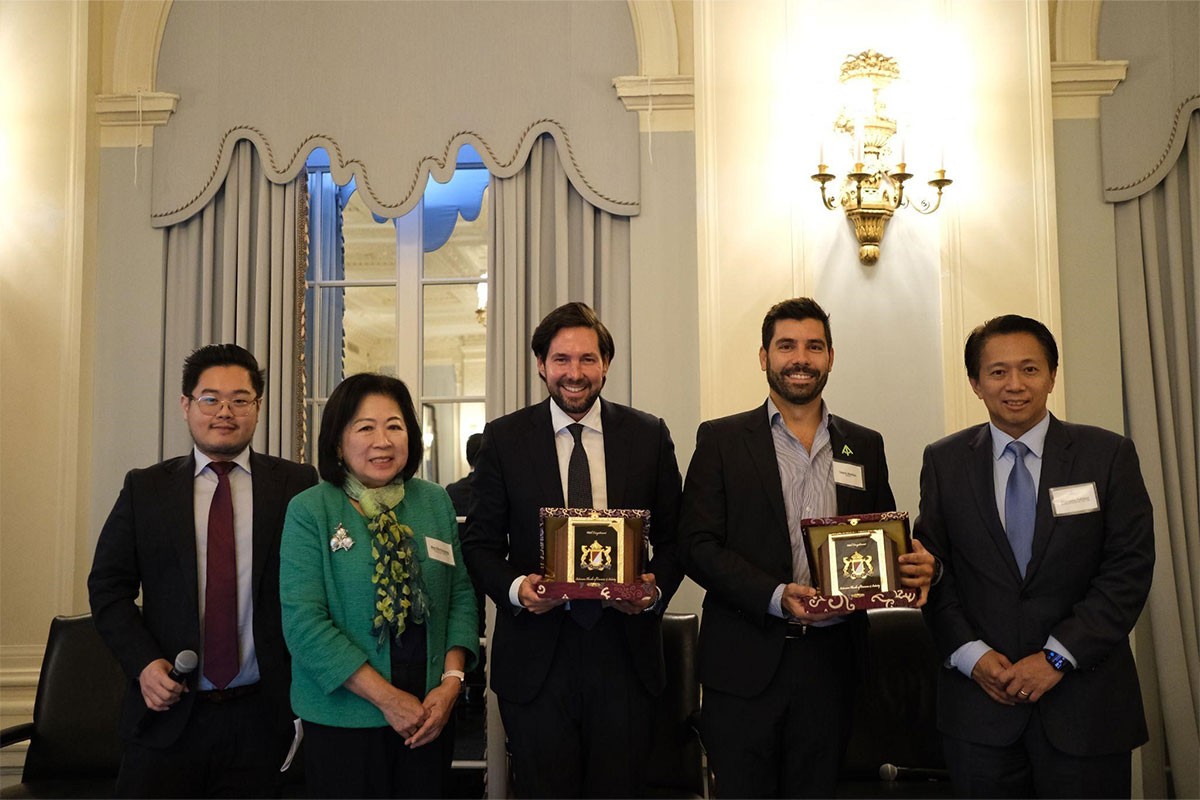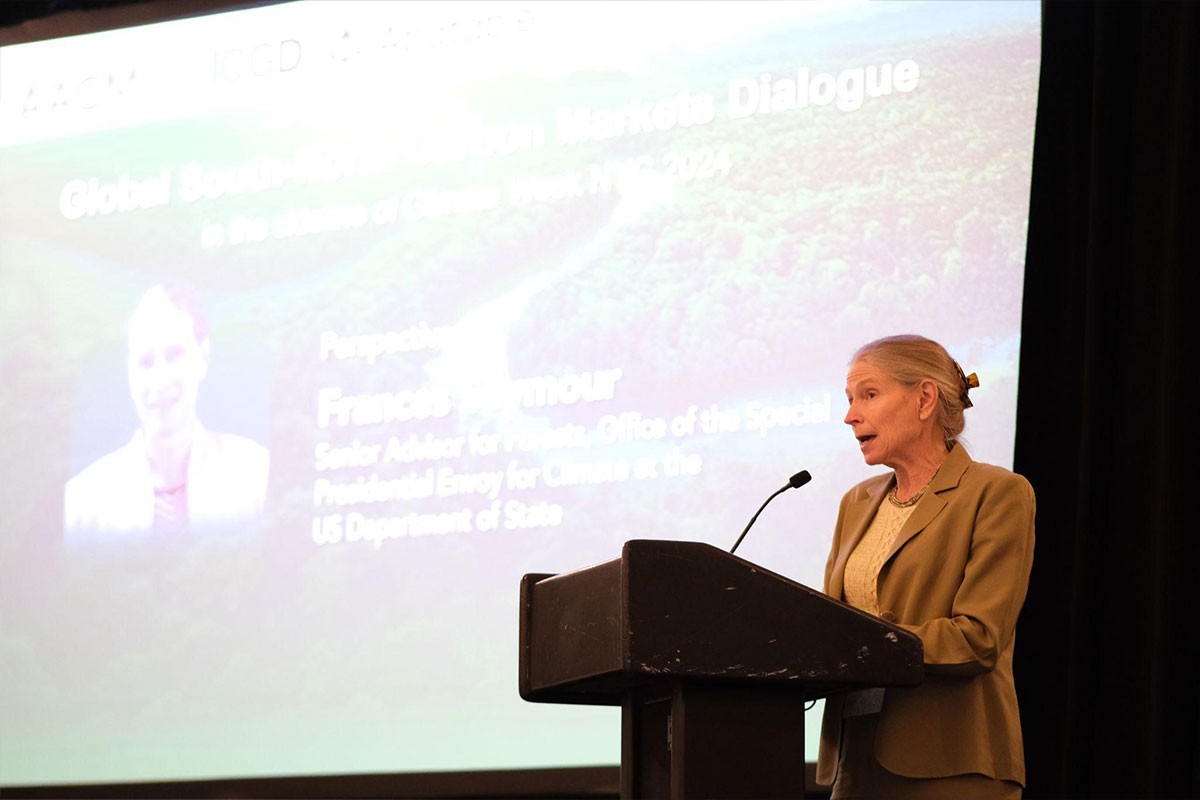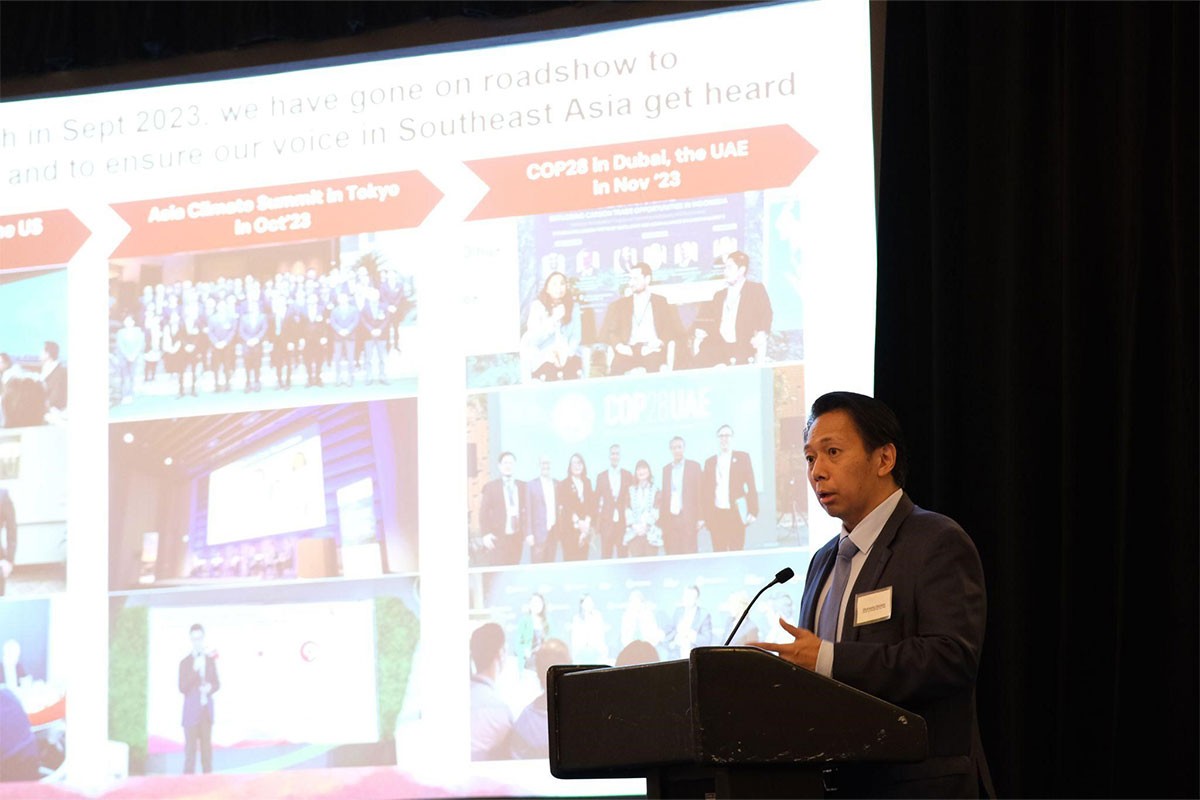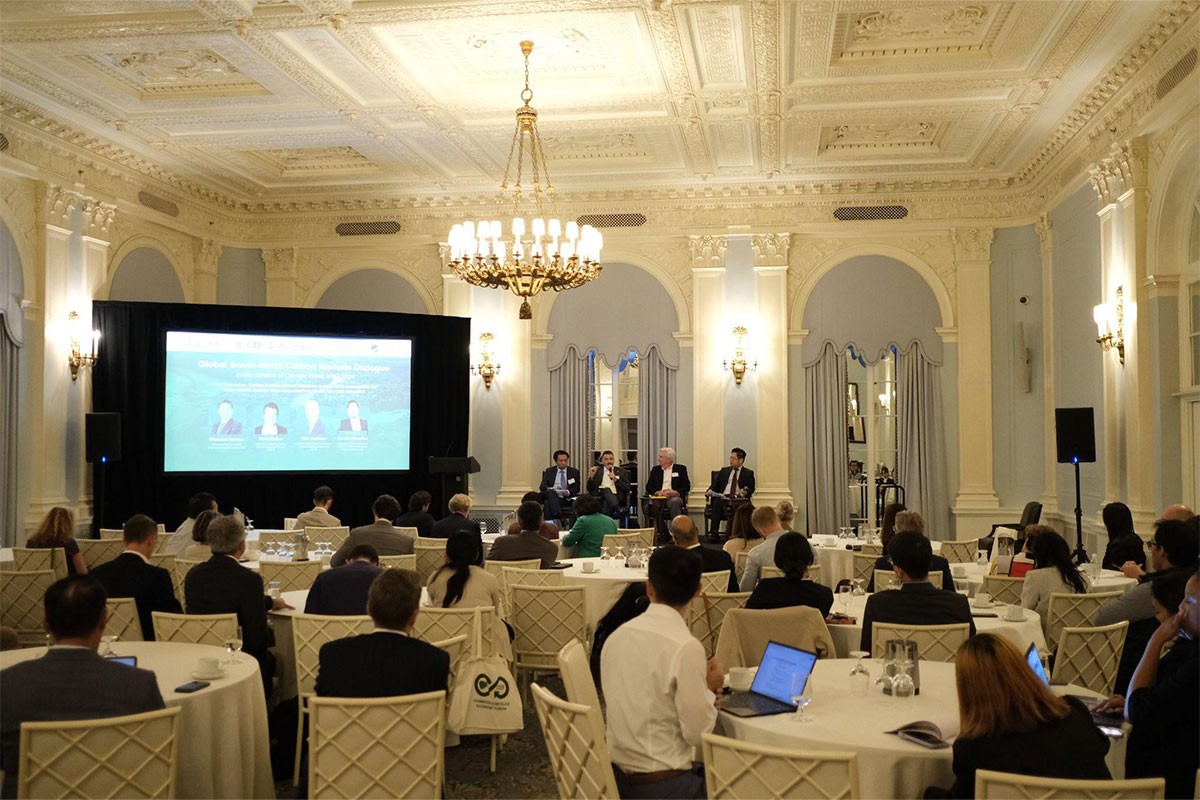Global South-North Carbon Markets Dialogue Held During Climate Week NYC 2024
New York, NY – September 23, 2024 – During Climate Week NYC 2024, business leaders and senior representatives from the Global South and North gathered for the Global South-North Carbon Markets Dialogue, aimed at fostering collaboration in developing high-integrity carbon markets. The event, held at the Grand Ballroom of the Yale Club of New York City, underscored the importance of voluntary carbon markets (VCMs) as a mechanism to support global climate finance, particularly for the Global South.
Hosted by the ASEAN Alliance on Carbon Markets (AACM), in collaboration with the Indonesia Climate and Growth Dialogue (ICGD), Abatable, Sustainable Energy for All (SEforALL) and BloombergNEF, the dialogue brought together 70+ stakeholders from across the carbon market ecosystem. The discussions highlighted the potential of the Global South to drive future carbon markets while addressing challenges related to market credibility and financial support.
Key Highlights
Steven Marcelino, Deputy Chair for International Affairs at AACM and Managing Partner at Equatorise, opened the event, emphasising the urgency for both the Global South and North to collaborate in building a robust carbon market ecosystem. “The time is now for the Global South to step up and leverage this new growth engine to fuel its economies while contributing to global climate ambitions,” he noted.
Frances Seymour, Senior Advisor for Forests in the office of the Special Presidential Envoy for Climate at the US Department of State, delivered a keynote, stressing the importance of carbon markets in scaling up climate finance through private sector investment. She outlined three key areas essential for ensuring market integrity: supply-side factors, demand-side factors, and social integrity, which includes fair participation and benefits for indigenous communities.
Panel Discussions
Three key panel discussions explored:
- The Global South's Role in Carbon Markets: With the Global South hosting the majority of the world’s carbon stock, the dialogue underscored the importance of supporting these regions to harness this resource for economic growth while contributing to global climate goals. By 2050, the value of the VCM market could reach up to $1 trillion annually, based on projections by BloombergNEF.
- Transition to VCM 2.0: The discussion included a critical assessment of the shift from VCM 1.0 to VCM 2.0, which prioritises transparency, satellite monitoring, and the role of new certification bodies such as ICVCM and VCMI. This shift is vital to increase market credibility and attract corporate buyers in the Global North seeking high-quality carbon credits.
- Indonesia's Carbon Market Opportunities: Exploring Indonesia’s vast natural resources and potential for effective policies, the discussion highlighted the country’s opportunity to become a global leader in carbon markets. By aligning carbon market activities with its sustainable development goals, Indonesia could attract significant investment and drive economic growth.
Dharsono Hartono, Permanent Chair at AACM and Chairman of KADIN Net Zero Hub, said:
“Southeast Asia offers a significant opportunity for carbon credit generation, with vast areas of forests suitable for carbon projects.”
Mark Kenber, Executive Director of Voluntary Carbon Markets Integrity Initiative (VCMI), stated:
“Asia-Pacific should prioritise stimulating regional demand for carbon credits, rather than solely relying on international investments. Many companies in the region can align with SBTi targets and benefit from local carbon market frameworks.”
Dirk Forrister, President and CEO at International Emissions Trading Association (IETA), emphasized:
“I support the idea of bridging voluntary and compliance markets. A cohesive approach is essential to achieve ambitious climate goals like those set by the Paris Agreement.”
Conclusion
In conclusion, the panel discussions emphasised the critical importance of a unified approach to carbon markets. To achieve our shared climate goals, we must work together to create a cohesive framework that fosters regional collaboration, leverages collective strengths and resources, and prioritises investment in high-quality carbon projects. Additionally, investing in human capital and fostering innovation are essential for driving the growth and sustainability of carbon markets.
About ASEAN Alliance on Carbon Markets (AACM)
The ASEAN Alliance on Carbon Markets aims to scale the growth of voluntary carbon markets across ASEAN (the Association of Southeast Asian Nations) and support the implementation of compliance markets.
About Abatable
Abatable is on a mission to enable all organisations to build a thriving future for climate, nature and people.
About Indonesia Climate and Growth Dialogue (ICGD)
The Indonesia Climate and Growth Dialogue (ICGD) is an initiative aimed to unite diverse Indonesian stakeholders in building a green, blue, climate-resilient, and inclusive future for Indonesia.
About Sustainable Energy for All
Sustainable Energy for All (SEforALL) is an international organization that works in partnership with the United Nations and leaders in government, the private sector, financial institutions, civil society and philanthropies.
About BloombergNEF
BloombergNEF (BNEF) is a strategic research provider covering global commodity markets and the disruptive technologies driving the transition to a low-carbon economy.





